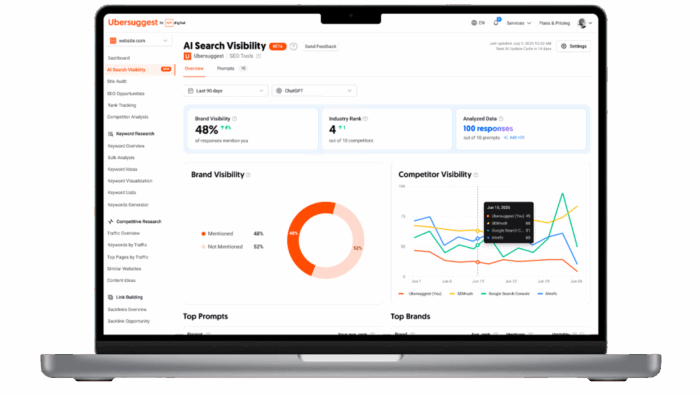Forbes’ 30 Under 30: How these 4 NUS grads help SMEs improve labour productivity and cost
StaffAny offers digital workforce management solutions to companies, helping them save up to S$24,000 in labour costs.

In a post-pandemic landscape, where borders and sectors are reopening across Southeast Asia, many business operations are restarting their engines.
However, many small and medium enterprises (SMEs) find themselves hindered by manual and inefficient human resource work, especially for those that largely depend on shift-based or part-time workers.
Such manual staff management uses spreadsheets and punch cards which are prone to costly errors such as over-scheduling, attendance inaccuracies, time theft, or excessive overtime payments. These methods may also not be scalable or standardised, and do not give business owners cost visibility, which can affect future plans and operations, and ultimately competitiveness.
Moreover, the Great Resignation labour crunch, coupled with Singapore’s rising inflation, which increased from 5.4 per cent in April to 5.6 per cent in May this year, further puts pressure on productivity, posing a great challenge to economic innovations such as scalability.
To help companies address these issues, Singapore startup StaffAny offers digital solutions to improve human resource management.
“It pains us to see that 60 per cent of new businesses fail within the first two year due to poor staff management and resource planning. Thus, we want to provide the platform to create and update shift work schedules in real-time,” shares co-founder Janson Seah.
It started out as a school project
StaffAny was co-founded in early 2018 by four 29-year-old friends: Janson (CEO), Kai Yi Lee (CPO), Eugene Ng (CRO) and Jeremy Hon (CTO).
They first met in the National University of Singapore’s Overseas College (NUS-NOC) program where they hung out, participated in hackathons and worked on night classes together.
Janson shares that they founded the company whilst in school, so StaffAny essentially started out as a school project. “We are actually student entrepreneurs,” says Janson.
 (L-R) Jeremy Hon, Janson Seah, Eugene Ng and Kai Yi Lee, co-founders of StaffAny / Image Credit: StaffAny
(L-R) Jeremy Hon, Janson Seah, Eugene Ng and Kai Yi Lee, co-founders of StaffAny / Image Credit: StaffAnyBack in 2014, Janson used to manage a bar, where he juggled various roles. He did everything from menu, pricing, marketing, to washing toilets — but the most painful was dealing with hourly workers.
Realising that the tools available to manage shift workers were ineffective, the four came up with the idea to develop StaffAny, which specialises in digital workforce management solutions for companies that engage hourly workers.
They were in Silicon Valley, San Francisco as part of the NUS-NOC program at the time, and it marked their first-ever official business venture.
“I still recall the days we were hacking and building StaffAny whilst going for classes, and us taking the leap of faith of not finding jobs compared to our peers during graduation season,” recounts Janson.
Fast forward to today, their innovative business idea has allowed them to be listed on Forbes’ 30 Under 30 Asia list this year.
Simplifying shift management for businesses
With the vision to connect businesses with leaner, future-forward workforces, they aim to empower today’s connected workforce to manage hourly workers with the provision of a data-driven approach.
StaffAny helps SMEs optimise scheduling, consolidate timesheets, and boost labour productivity through its scheduling, timesheet and time clock software. This ultimately helps to save costs and increase operational efficiency across human resource and operations.
The main pain points we help with includes labour cost optimisation, enabling businesses to build a pool of dedicated casual workers to deal with the manpower crunch, and reduce the administrative nightmare of determining how much to pay your staff.
– Eugene Ng, co-founder of StaffAny StaffAny founding team member Albert Yeo (left) with a client / Image Credit: StaffAny
StaffAny founding team member Albert Yeo (left) with a client / Image Credit: StaffAnyStaffAny basically offers a solution to managing working hours by ensuring that tabulation and consolidation automatically happens on the back-end when staff clock in via its app. Their platform also tracks staff performance and automates end-of-month timesheet consolidations.
This centralised platform enables owners and managers to focus on delivering core services rather than onerous administrative paperwork. This increases efficiency through digitalisation, since managers can access the information and adjust only if they have a need to.
“[We recently] launched our StartUp Plan to empower all startups to digitise, and help them move from the hassle of using pen and paper to a digitised workflow that saves time, money, and headache,” adds Eugene.
The launch of this Startup Plan comes two months after successfully closing a S$4.6 million Series A funding round led by Granite Global Ventures (GGV) Capital in January 2022.
StaffAny currently offers this free Start Up Plan to all businesses with less than 25 workers, or those operating for less than a year. The plan, which was initially offered to larger-scale companies in March, has gained immense acclaim that encouraged StaffAny to widen its reach to smaller businesses with over 400 sign-ups within a month.
They lost many early pilot customers
Since inception, StaffAny has successfully raised over S$5 million in funding, thanks to the support of NUS and angel investors. However, their startup journey was far from smooth-sailing.
[T]he biggest challenge was to get our first customer onboard. We were going door-to-door and trying to get users to our first minimum viable product (MVP).
– Janson Seah, co-founder of StaffAnyHe recalled how bad the initial product was: some features were hard-coded, and some workflows were not intuitive. “We really had a bare minimum product,” Janson remarks.
They shared that going through that stage was a struggle because the product was not mature enough to deliver their vision, which they tried so hard to articulate.
As a result, they lost many early pilot customers. Regardless, the co-founders highlighted that there were other early adopters they are grateful for, such as Jasmine from The Royals Cafe, and companies like The Cat Cafe and Forward Coffee that never gave up on them.
 The Royals Bistro / Image Credit: StaffAny
The Royals Bistro / Image Credit: StaffAny Thanks to StaffAny, The Royals achieved zero discrepancies and full transparency between the manager and staff as time spent in organising time sheets was reduced from one day into merely two to five hours. Foreword Coffee also managed to reduce scheduling time needed from three hours to just one.
Additionally, the co-founders cited that they faced the perennial issue of hiring and retaining talent in building their business, especially when the market is so heated up with the talent wars.
“We overcame them by doing our best to create the best internship/trainee experience for our junior staffers, and it brings a smile to my face that many of our interns are now leading teams as managers and leaders themselves,” says Eugene proudly.
Pivoting during COVID-19
When COVID-19 struck, their business was significantly impacted.
The initial [business] strategy was to focus on doing something a small group of people love instead of something a large group of people “kind of” like. As such, we were heavily focused on delivering success to our users in F&B and retail.
During the pandemic, our concentration resulted in poor business growth and we had to pivot our strategy. We went to support other vertices such as logistics, which was receiving tailwinds from the e-commerce boom then, as well as healthcare, where vaccinations and testing was a key new opportunity.
– Janson Seah, co-founder of StaffAnyThe company was quick to react and adapt in order to thrive in the new normal, and this pivot enabled their business growth to more than double.
According to the co-founders, businesses that have switched to adopting StaffAny have witnessed three per cent lower hourly labour costs, which can equate up to S$24,000 of savings annually in some cases.
Additionally, StaffAny has reportedly saved more than 507,000 hours of unnecessary paperwork and tracked over 17.6 million employee hours to date.
B2B SaaS is here to stay
When asked to describe the manpower landscape in Singapore and globally, Janson said that it has more similarities than differences and that there are many opportunities to empower, rather than disrupt.
He went on to share two key observations. Firstly, he noted that the pandemic lockdowns have boosted the adoption of cloud technology to empower work, which increases receptiveness in using productivity apps in the business-to-business (B2B) setting.
“We are bullish on the adoption of more productivity products in the workforce,” he adds, expressing his confidence in B2B Software-as-a-Service (SaaS).
He further shares that the workforce has become more selective, causing the blue- and grey-collar markets will both witness a manpower crunch. Businesses are therefore likely to face uphill challenges of attracting talent, which means that more businesses would start investing more in talent retention.
StaffAny aims to be the defacto operating system for hourly workers. We will continually improve the performance of labour in the workplace, and help businesses be more successful by increasing productivity, lowering labour costs, and building a higher quality workforce in the places we serve.
Colloquially, we aspire that one day, all businesses will never need to use punch cards and manual spreadsheets to deal with staff scheduling.
– Eugene Ng, co-founder of StaffAnyFeatured Image Credit: StaffAny

 JimMin
JimMin 

























.jpg&h=630&w=1200&q=100&v=f776164e2b&c=1)





